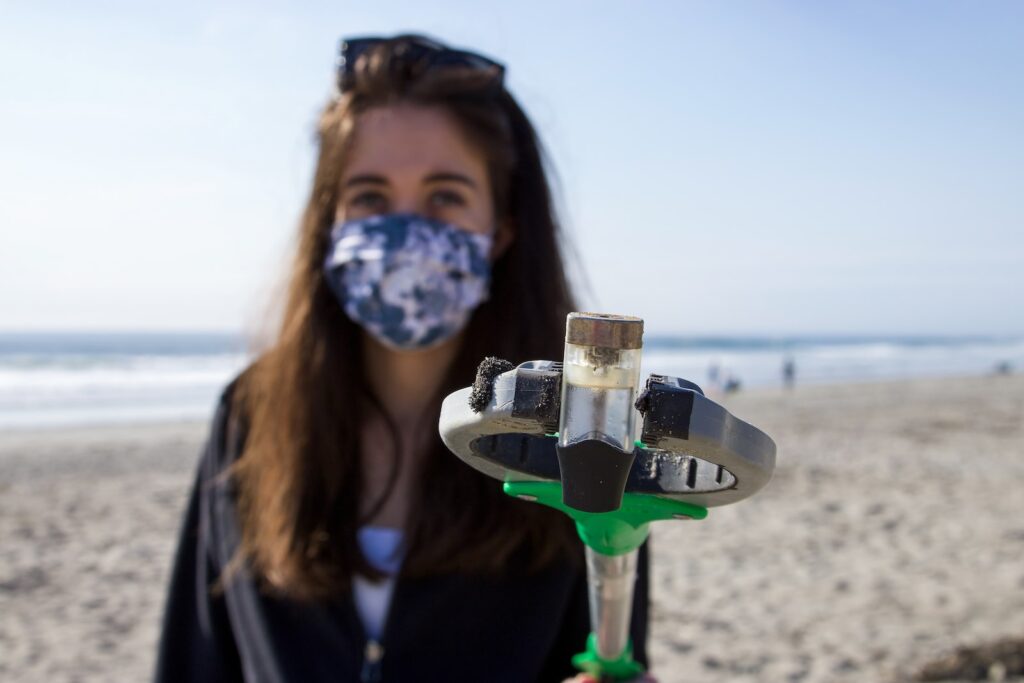Researchers to study how coastal litter has changed over time
Researchers from Loughborough University will be embarking on a new investigation studying how waste found on beaches has changed over the years.
The project will bring together local heritage, drones and mobile phone apps to track how litter found on the Isle of Skye has changed over the past half century.
A grant from marine conservation charity Sea-Changers will support the project as its led by Dr Tom Stanton, from the Department of Geography and Environment, and Melissa Schiele, a PhD student in the School of Mechanical, Electrical, and Manufacturing Engineering.
The pair will collaborate with local organisations and residents of Skye to understand how the distribution and characteristics of coastal waste has developed. They will also investigate the levels of microplastic pollution and textile fibres in the island’s seas.

Schiele, who works on drone-based research in the Maldives, said: ‘I’m thrilled at the opportunity to work with Dr Tom Stanton to trial this exciting ‘hands-on’ multidisciplinary approach to data gathering and citizen science.
‘I’ll be extending the techniques I’m working on in the Maldives to the shores and people of Skye, to see if locally-led drone use can fit into the long-term monitoring strategies on the island.’
The ‘50 years of litter on Skye’ project will run for a year, using oral history and community beach litter surveys collected through apps to build data. Schiele will also use drones to enhance findings of the ground survey.
It’s hoped this will empower Skye residents to monitor their beaches long after the project, using the environmental surveying toolkit.
The project will also build on the work of late organic polymer chemist Professor Gerald Scott who was the first person to identify the ocean as a prominent source of litter on beaches in the Isle of Skye in 1972.
Dr Stanton said: ‘It is important to reflect on Scott’s work because in his publication he foreshadows the magnitude of pollution from litter we now find ourselves faced with.
‘Scott’s publication was also hopeful of technological solutions to the problem of plastic pollution which, unfortunately, still have not materialised.
‘We want to learn from the local knowledge on the island, both the dynamics of pollution in the present, but also in living memory, dating back to Scott’s visit to the island if possible.
‘Local communities have regionally specific knowledge that can provide unique insights into the environments that geographical research studies.
‘This is something we will be keen to tap into, and it provides the project with a unique mixed methodology that will consider both the beach pollution on the island and what it means to the island’s community.’
Photo by Brian Yurasits















